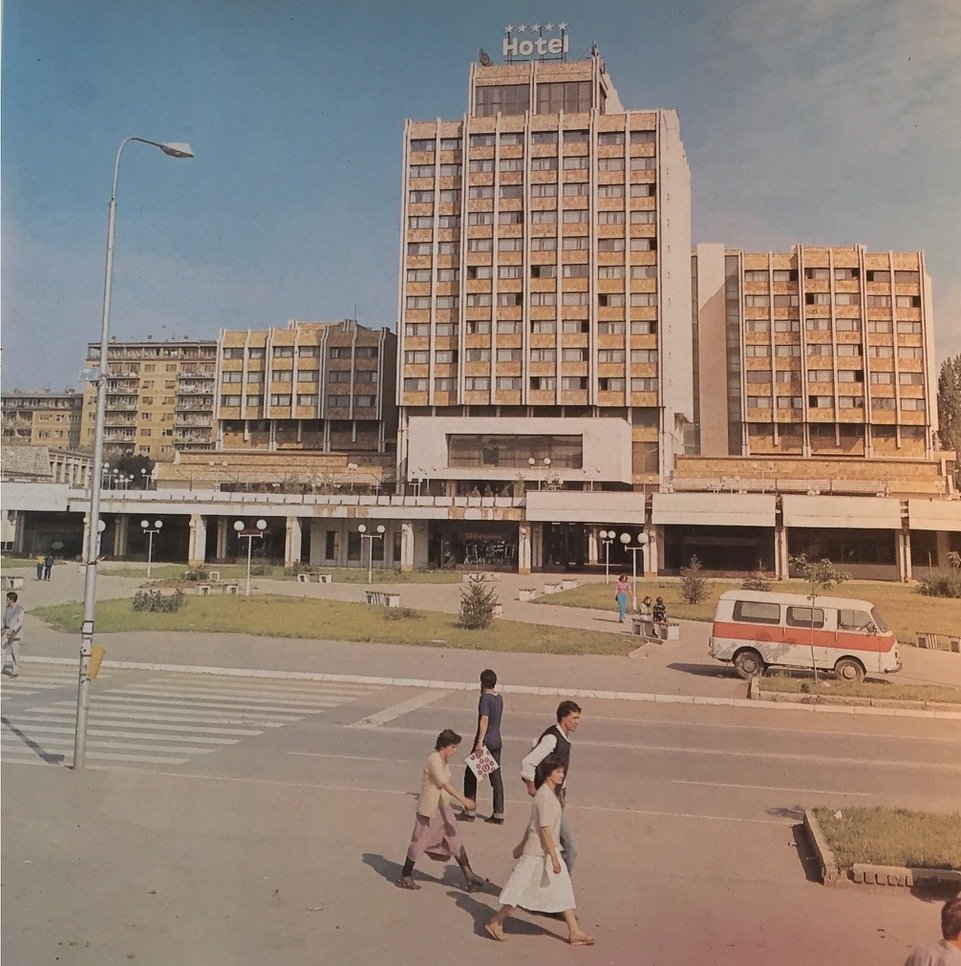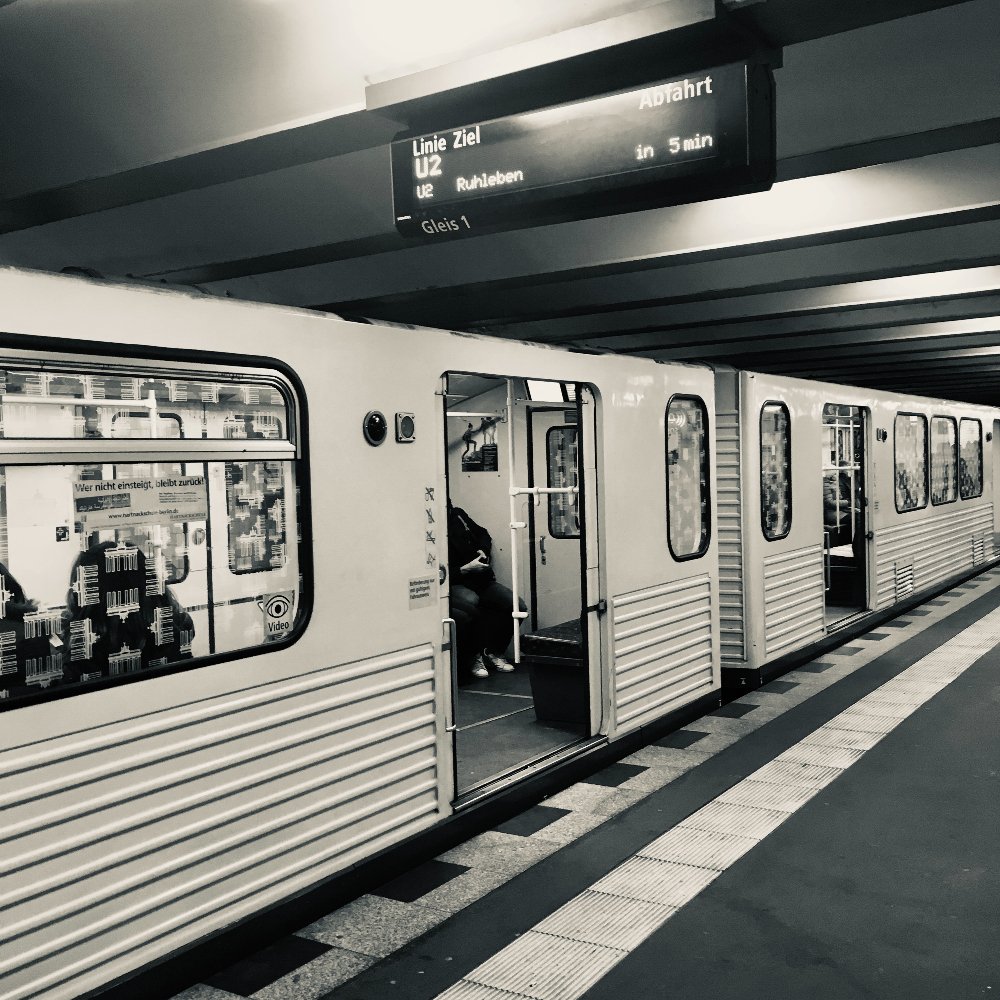It is always an exciting day when someone that we know and admire has their book published, especially when it concerns itself with our home city of Berlin. Emma Venables is an extremely talented writer (whose work we are proud to have published here on Elsewhere) and her debut novel Fragments of a Woman is both startling and impressive. Following the lives of five women in National Socialist Germany, I was extremely privileged to be given the opportunity to read an advance copy ahead of its publication this month.
Exploring themes of identity, nationalism, womanhood and motherhood, trauma and the crimes of National Socialism, this book is unflinching, moving and beautifully written, and for this reader at least posed a number of uncomfortable questions about how we as readers approach certain types of characters and the expectations and preconceptions we bring to someone else’s words on the page. Fragments of a Woman tells stories of Nazi Germany, at a time when there are no longer many around who can share their experiences, and stories such as these, when written with diligence and intelligence, will be increasingly important.
This book holds the reader by the head and makes us look, which we do with both empathy and, at times, horror. It is a fine achievement, and we thank Emma for the chance to share this extract with you… – Paul Scraton
Fragments of a Woman – Chapter 4
By Emma Venables:
Gisela loves the smell of a Berlin bar, loves the smell of stale beer, of smoke, the hint of vodka, sweat, and polish. She loves the sound of good music – the whine of a violin, the tinkle of a piano. She loves the way heads turn when she walks in, even though the men around her, in this particular bar, are not inter- ested in her curves, her flesh, her pulse. A few smile, raise their glasses as she makes her way through the crowd. She raises herself to her tiptoes, looking over familiar and unfamiliar heads to find Volker. She recognises his back, would recognise it anywhere, for he always wears a waistcoat, and tonight his chosen one is her favourite shade of purple.
She steps left, then right, around the patrons blocking her way. Someone steps on her toe, and she winces, utters a curse under her breath. She wafts a cloud of smoke from her face, scowls at the man responsible until finally she stands behind Volker. She reaches out and rubs his back. He turns, wobbling on his barstool.
‘Steady on,’ she says.
He leans back, resting against her shoulder, and gives her an awkward kiss meant for her cheek, but landing on her nose.
‘Happy Birthday, Gisi!’ he says. ‘It’s 1934, and you’ve been on this earth exactly nineteen years today. And how honoured you must be to share your celebrations with the Chancellor of Germany.’
‘Have you been drinking for me or for him?’ she asks, pushing him forward.
Volker turns, pauses, and squints as if trying to do a difficult equation.
‘You, naturally, because you know my feelings for you know who.’
Gisela raises an index finger to silence him. He shrugs, waves a hand around as if to indicate everyone agrees. Gisela grabs his face between her hands and plants a kiss on his lips.
‘You’re adorable when your face is all squished up,’ she says, and kisses him once again.
Volker shakes himself free. ‘And you’re wearing an exquisite dress. Spin for me.’
Gisela obliges. ‘Kaufmann’s’ finest. His wife is quite the seam- stress,’ she says, smoothing the skirt of her navy-blue tea dress.
‘I approve. I love the neckline,’ he says, with a wink.
‘Stop staring at my chest.’ She places a hand to her collarbone.
‘You know your chest would have to be much flatter for me to feel any fire in my loins.’
They laugh. Volker turns to the bar, and waves for the barman’s attention.
Gisela taps the shoulder of man on the stool next to Volker. ‘I think that’s my seat.’
‘Excuse me?’
‘Don’t worry about it, but you need to move now.’
The man sighs but vacates the stool. Gisela sits down.
‘You’re shameless,’ Volker says.
‘I’ve nothing to be ashamed of. Besides, it’s my birthday.’
Gisela takes a swig of her drink, leans her head back, and smiles at the damp ceiling above. She still feels slightly nauseous from eating the giant slice of cake decorated with a swastika a woman in the street handed her earlier. It’s my birthday, too, she had told the woman, but refused the second slice of cake she was offered. Although, she did take the flower from the boy in the Hitlerjugend uniform. A pink carnation, which she dropped into her handbag and forgot about until she got her purse out in Kaufmann’s to pay for her dress. She had felt around the lining for the loose petals and stem and asked Herr Kaufmann if he had a bin.
‘God, I’m glad this place hasn’t been shut down yet,’ she says, moving her gaze to the row of bottles behind the bar.
‘You, me, and every one of these beautiful people,’ Volker says.
‘But it’s only a matter of time, isn’t it?’
‘Don’t get mournful on your birthday, Gisi. You go down, I go down, isn’t that the way it’s always been? Ever since I was six and my mother dragged me away from you because you weren’t our kind of person, and your mother certainly wasn’t.’
‘Well, a respectable little German boy shouldn’t play with girls from the gutter.’
‘To hell with that. Cheers.’
Volker raises his glass and clinks it so hard against Gisela’s that a tiny crack appears in the rim; he runs his finger back and forth over the uneven surface.
‘I almost got caught on my knees in the Tiergarten the other day,’ Gisela says.
He wipes amber droplets from his chin. ‘You need to be more careful, Gisi.’
‘We were behind a tree, hidden by several trees, actually, but they’re relentless. In the end, I had to leap up, wipe my face, push the pervert I was with into action, and feign a proposal.’
‘A proposal?’
‘Yes. He was down on one knee by the time they appeared between trees, and I was professing that he’d have to ask my father for I wasn’t that kind of girl. They nodded and left sharply, which is a relief because when he stood up his limp cock was still hanging from his trousers.’
Volker’s head rests upon the bar now, and his shoulders shake. He still grips his half-filled glass of beer in his left hand.
‘Are you laughing or crying? Because at the time I wasn’t sure what to do either.’
‘Both, I think,’ he says, his voice muffled.
Gisela rests her head on Volker’s shoulder. Even here the band strike up a chorus of ‘Zum Geburtstag viel Glück’ in honour of Adolf Hitler. Gisela and Volker remain silent, but Gisela smiles at the sardonic tone she can detect in the voices around her. Applause fills the room. Glasses clink. A barmaid places a cake on the bar. Gisela sighs.
‘I’ve eaten more swastikas today than I care for. Shall we go?’ she asks.
‘So early?’ Volker says, sitting upright.
‘I’ve got something to do at ten,’ she says.
‘You’ve got someone to do at ten, you mean,’ Volker says. ‘I suppose I could go and see Hans.’
‘Not home to mama?’
‘God, no. I’ll slip in in the early hours and she’ll never know. She sleeps like an elephant. I’ve really no idea how an elephant sleeps but I presume it’s heavily.’
‘I imagine she’s exhausted from all the celebrating today,’ Gisela says, sliding off her stool.
‘Yes, she was feeling rather exuberant when I left. I had to tell her I was going to celebrate Hitler’s birthday with friends.’
‘I’m surprised she hasn’t dressed you in a little brown shirt.’
They step out onto Motzstrasse, and Gisela links her arm through Volker’s. She looks up and breathes in the cool air. She likes looking at the windows above, at the light escaping through cracks between curtains, knowing people go about their lives behind walls: that men kiss men, and women kiss women, and the government cannot stop them all. A car’s brakes squeal in another street. Someone opens a window above and the white noise of an un-tuned wireless seeps out. Volker lights a cigarette, takes a drag, and offers it to Gisela. He holds the cigarette while she inhales. As she exhales, she notices two men walking towards them.
‘We just saw you coming out of that bar over there,’ one of them says.
‘And?’ Gisela says, eyeing up their uniforms. ‘My boyfriend and I were enjoying a quiet drink, celebrating the Chancellor’s birthday. Then they broke into song and brought out a cake. Lovely cake. Swastikas and black icing. Looked just like that band on your arm. We all sang for the Chancellor. Then we ate cake.’
The men look at Volker. Gisela feels a tremor in his arm. She clenches her muscles, attempting to reassure him. One of them loops his fingers around his braces.
‘And now my boyfriend’s walking me home to my mother, so we have to go. Good night.’
Gisela gently tugs on Volker’s arm, and they begin to walk. Volker stumbles slightly, but she holds him upright. The men do not seem to notice. She listens for the sound of their footsteps receding, determined not to speak until they have moved on. She turns her head a fraction to the right, pretending to admire the doorway of an apartment building, and from the corner of her eye watches them walk in the opposite direction.
‘Are you OK?’ she asks.
Volker nods, keeping his eyes on the street ahead. ‘I can’t believe you sleep with men like that.’
‘They pay me well, and sometimes they’re quite gentle. It’s as if they’ve spent all their hatred out here and they just want to give affection in bed.’
Volker shakes his head. Gisela takes his hand and grips it in hers.
‘We must be careful, you and I,’ he says.
He breathes sharply and throws his burnt-out cigarette towards the gutter.
‘We must be bold and beautiful, as always,’ she says.
He pulls her towards him, muffling her face against his chest. She puts her arms around him and breathes him in – aftershave he cannot really afford, cigarette smoke, the tinge of sweat – until the buttons of his waistcoat become uncomfortable against her face.
***












